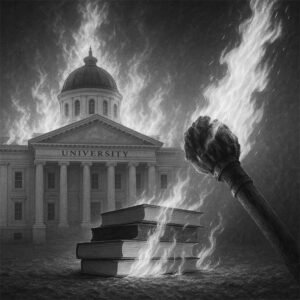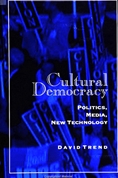American higher education finds itself under siege, facing unprecedented political attacks that threaten its fundamental mission and autonomy. What makes these assaults particularly devastating is not just their intensity, but the fertile ground of public sentiment that has enabled them to take root and flourish. The convergence of deep-seated anti-intellectual currents with a dramatic erosion of trust in universities has created the perfect conditions for opportunistic politicians to weaponize higher education as a cultural and political battleground.
Once seen as sites of personal and social betterment, universities and colleges nationwide now struggle with a profound crisis of confidence. This shift in perception is hardly anecdotal. Recent surveys reveal that but 36 percent in the U.S. feel positively about higher education, reflecting serious concerns over the institution’s efficacy and fairness.[i]  Moreover, a growing partisan divide complicates the erosion of trust. While 59 percent of Democrats express confidence in higher education, a staggering 81 percent of Republican voters now view the institution unfavorably. This chasm speaks volumes about the politicization of education in America, with college increasingly seen as a battleground for antagonistic ideologies.[ii]
Moreover, a growing partisan divide complicates the erosion of trust. While 59 percent of Democrats express confidence in higher education, a staggering 81 percent of Republican voters now view the institution unfavorably. This chasm speaks volumes about the politicization of education in America, with college increasingly seen as a battleground for antagonistic ideologies.[ii]
A pragmatic shift in educational preferences complements this rift. Mirroring student attitudes is the reality that most Americans now regard trade schools and vocational training as equivalent or superior to four-year institutions in delivering practical education. This pivot reflects changing educational values and an indictment of the entire enterprise of higher education. The growing appeal of alternative educational paths suggests a fundamental reevaluation of what constitutes valuable knowledge and skills in today’s rapidly changing job market. The roots of this mistrust are multifaceted, extending beyond mere economic calculations to encompass broader socio-political undercurrents. Often associated with privilege and intellectual elitism, higher education increasingly is viewed through a lens of class-based suspicion.
Continue reading “American Anti-Intellectualism Fuels the New War on College”

